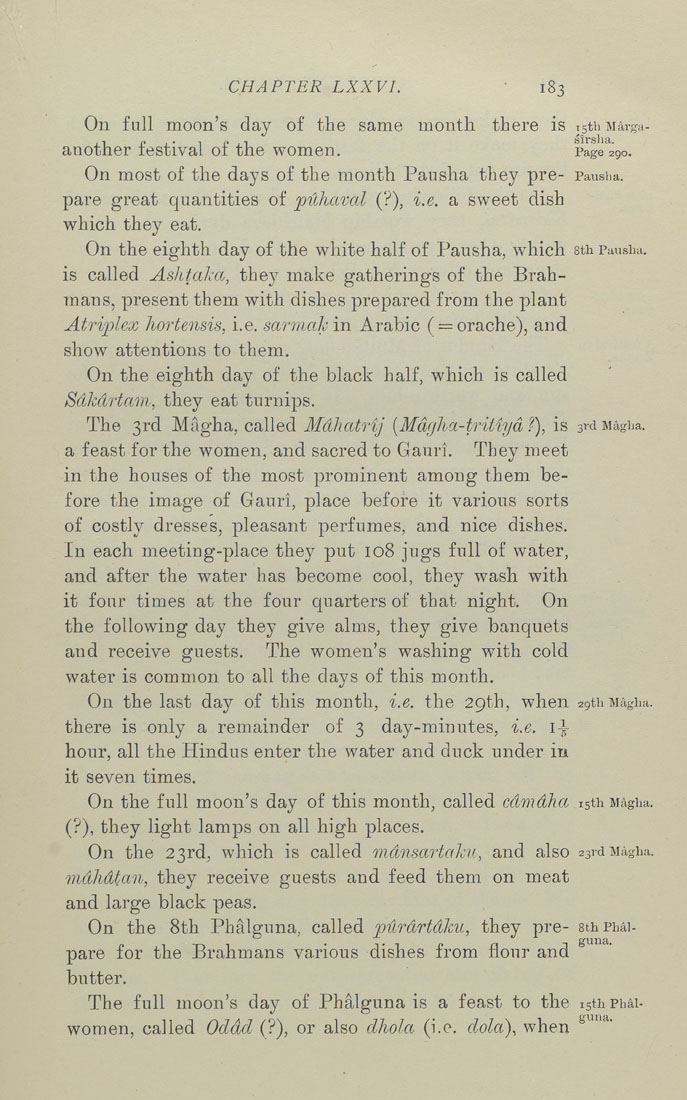CHAPTER LXXVI. ' 183
On full moon's day of the same month there is isthMarga-
another festival of the women. Page 290.
On most of the days of the month Pausha they pre- Pausba.
pare great quantities of piihavctl (?), i.e. a sweet dish
which they eat.
On the eighth day of the white half of Pausha, which sth Pausha.
is called Ashtaka, they make gatherings of the Brah¬
mans, present them with dishes prepared from the plant
Atrip)lex hortensis, i.e. sarmctkin Arabic ( = orache), and
show attentions to them.
On the eighth day of the black half, which is called
Sdkdrtam, they eat turnips.
The 3rd Magha, called Mdhcttrij [Mdgha-tritiyd ?), is 3rd Magha.
a feast for the women, and sacred to Gauri. They meet
in the houses of the most prominent among them be¬
fore the image of Gauri, place before it various sorts
of costly dresses, pleasant perfumes, and nice dishes.
In each meeting-place they put 108 jugs full of water,
and after the water has become cool, they wash with
it four times at the four quarters of that night. On
the following day they give alms, they give banquets
and receive guests. The women's washing with cold
water is common to all the days of this month.
On the last day of this month, i.e. the 29th, when 29th Magha.
there is only a remainder of 3 day-minutes, i.e. i-i-
hour, all the Hindus enter the water and duck under in
it seven times.
On the full moon's day of this month, called cdmdhct isth.-Magha.
(?), they light lamps on all high places.
On the 23rd, which is called mdnsctrtaku, and also 23rd Magha.
mdhdtctn, they receive guests and feed them on meat
and large black peas.
On the 8th Phalguna, called pilrdrtctku, they pre- sthPhai-
pare for the Brahmans various dishes from flour and
butter.
The full moon's day of Phalguna is a feast to the 15th Phai-
women, called Oddd (?), or also dhola (i.e. dola), when
|








